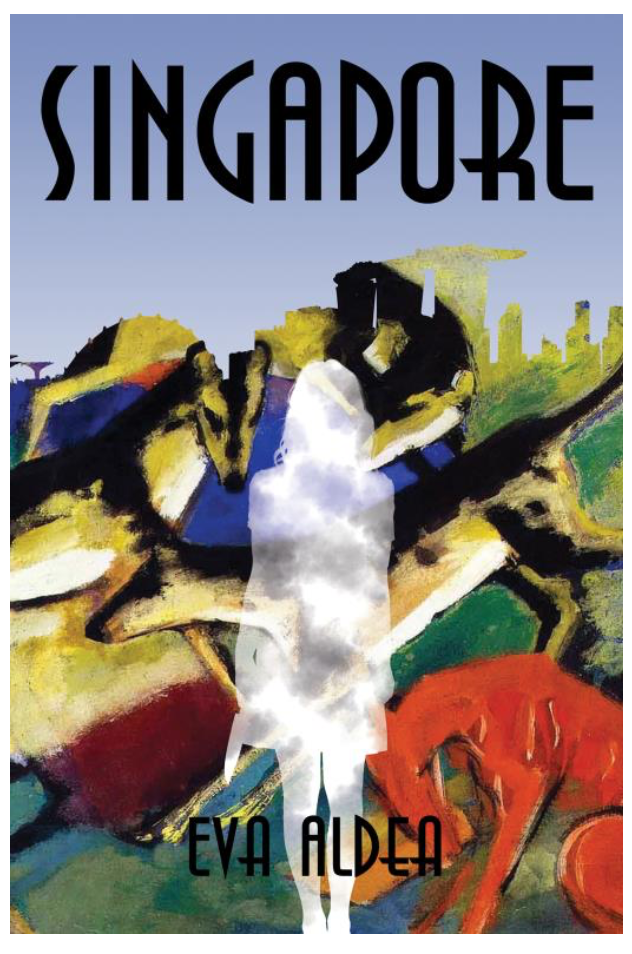In Eva Aldea’s debut novel, Singapore is hot and humid, tense, sterile and slow. There are snakes and crabs, expat housewives with Filipina maids. At the centre of this, there is an unnamed female protagonist who vehemently resents her life abroad. She hates the humid heat, struggles to relate to the fellow expats in her circle, and finds solace, it seems, through violent fantasies of murdering the people around her.
At its core, ‘Singapore’ is an account of a woman trapped by her life as a housewife in a foreign country, and an exploration of the beastly depths of the human brain when left alone to stew. It’s also about the complicated socio-political landscape and dripping heat of Singapore itself. In the background of the protagonist’s personal story is an exploration of class tensions, privilege and colonialism. She is almost painfully aware of her privilege, and she both resents the class system in Singapore and enjoys the benefits it offers her. Singapore, a nation where ‘not all cultures are treated equal all the time’, is called into question—and we’re left meditating on the ethics of capitalism and the impact of British colonialism.
The writing itself is precisely detailed and cinematic, like a calculated screenplay in which every moment or object feels intentional and significant to the story. We see our protagonist taking coffee beans from the freezer, removing a clothes pin, replacing it. We watch her navigate the packaged rice aisle in a supermarket, picking up each variety and putting it back on the shelf. She moves something from a desk to another desk to the kitchen counter; she adjusts the temperature of the fridge. And we find ourselves wondering where these moments might lead, constantly kept on our toes. These details also have a way of stretching time and rendering an eerie, creeping slowness to the text that’s punctuated by consistent references to violence and death.
There are venomous snakes and fighting fish. There is the chopping and grinding of coffee beans, the slicing of liver and lungs. Our protagonist sees ‘corpses’ at a yoga class and realises that she likes chopping meat and scooping aubergine flesh, ‘fascinated by these things that once were alive’, interested in ‘the thrill of the hunt’—until it turns into elaborate fantasies of murder. At points, the descriptions are so detailed and elaborate that it’s hard to tell what’s real and what’s projected. Has she actually murdered the maid? Is she actually keeping a body in the boot of her car? Or are her fantasies simply that calculated, a deeply analysis of what she’d have to do in each instance to get away with it? I’m not convinced we’re meant to know. The book becomes a blurred reality and a manifestation of her manic thoughts.
There are times when the details feel over-explained, the scenes so mundane and so slow that it risks boring the reader. But that, I think, is the sheer brilliance of the writing. Aldea forces us to endure the boredom of her protagonist and the brutality of her thoughts as if we’re right there with her. These mundane details invite us into the confines of the protagonist’s brain in ways few fiction texts do. We see her question whether she should kill herself, watch her spill hot water on herself just for the drama of going to the doctor. And the result, somehow, is a likeable character: someone painfully self-aware and tortured by her day-to-day and someone worth rooting for, even despite her murderous fantasies. The reader is so intimately intertwined with the text that we can feel the muggy heat, the long and languid days spent alone, and we feel trapped right there with her. In a way, I too went mad as I read it.
This is a book is for anyone curious about exploring the absurdities of the human brain and the animalistic tendencies that exist within us all. It allows a rare look inside a character’s intrusive thoughts—the kinds of thoughts that few authors are bold enough to put on the page. In an article on Books By Women, Aldea credits ‘discomfort and boredom’ as the driving force behind her writing, recalling her own experience living abroad in Singapore and the complicated feelings that arose from it. I like the idea that this novel serves as a means of exploring the depths of one’s brain in ways we often don’t let ourselves. One’s anger and frustration taken to extremes. One’s beastly nature on full, unabashed display.

